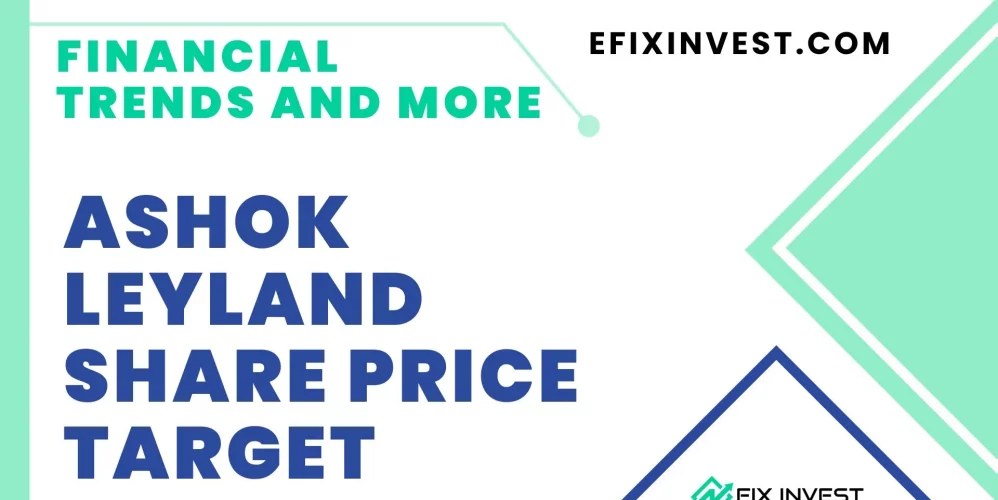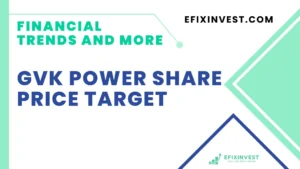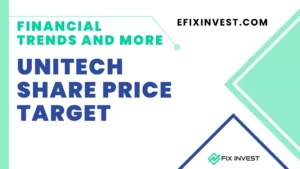Ashok Leyland Share Price Target (2023, 2024, 2025, 2026, 2027, 2028, 2029, 2030), Ashok Leyland Ltd Fundamentals, Businesses and more
Ashok Leyland is one of the leading commercial vehicle manufacturers in India and the world. The company has a diversified product portfolio that includes trucks, buses, defence vehicles, engines, and power solutions. Ashok Leyland has a strong presence in the domestic market as well as in over 50 countries across the globe. The company has been in operation for over 74 years and has a reputation for innovation, quality, and customer satisfaction.
In this article, we will analyze the performance, prospects, and valuation of Ashok Leyland and provide our share price target for the next few years based on various factors and assumptions.
Table of Contents
TogglePerformance
Ashok Leyland has shown a remarkable recovery from the impact of the COVID-19 pandemic on the automobile industry. The company reported a record revenue of ₹41,783 crore (US$5.2 billion) for the financial year 2023, up by 17% from the previous year. The operating profit increased by 38% to ₹2,268 crore (US$280 million) and the net profit surged by 1,000% to ₹1,361 crore (US$170 million). The company also improved its market share in the medium and heavy commercial vehicle (M&HCV) segment from 30.8% to 32.1% and in the light commercial vehicle (LCV) segment from 18.9% to 20.4%. The company also launched several new products and services such as Bada Dost LCV, AVTR modular truck platform, i-Alert telematics solution, and Switch Mobility electric vehicle subsidiary.
Also Read – Alstone Textiles Share Price Target 2023, 2024, 2025, 2026, 2030
Prospects
Ashok Leyland has a positive outlook for the future growth of its business. The company expects to benefit from the recovery in the economic activity, infrastructure development, e-commerce boom, and rural demand in India. The company also aims to expand its presence in the international markets, especially in Africa, Middle East, South Asia, and Southeast Asia. The company is also investing in new technologies such as electric vehicles, hydrogen fuel cells, digital solutions, and autonomous driving. The company has a vision to become a global leader in sustainable mobility solutions.

Valuation
Ashok Leyland’s share price has appreciated by over 80% in the last one year, reflecting its strong performance and growth potential. The company’s current market capitalization is ₹53,143 crore (US$6.7 billion) as of August 4, 2023. The company’s earnings per share (EPS) for the financial year 2023 was ₹6.06 (US$0.08). Based on this EPS, the company’s price-to-earnings ratio (P/E) is 29.78, which is higher than the industry average of 24.67. However, this P/E ratio is justified by the company’s higher growth rate, profitability margin, return on equity, and dividend yield than its peers.
Ashok Leyland Fundamentals
| Market Cap | ₹44,923 Cr |
| P/E ratio | 36.17 |
| ROE | 15.65% |
| EPS | 4.23 |
| Book Value | 29.13 |
| Dividend Yield | 1.70% |
| Debt | ₹31,161 Cr |
| Debt To Equity | 3.64 |
Share Price Target
Based on our analysis of Ashok Leyland’s performance, prospects, and valuation, we have derived our share price target for the next few years using different methods and scenarios.
Method 1: Discounted Cash Flow (DCF)
The discounted cash flow method is a valuation technique that estimates the present value of a company’s future cash flows based on its expected growth rate, discount rate, and terminal value. We have used the following assumptions for our DCF model:
- Free cash flow (FCF) for the financial year 2023: ₹2,000 crore (US$250 million)
- FCF growth rate for the next five years: 15%
- FCF growth rate after five years: 5%
- Discount rate: 10%
- Terminal value multiple: 15
Using these assumptions, we have calculated the present value of Ashok Leyland’s future cash flows as ₹54,892 crore (US$6.9 billion). Dividing this by the number of shares outstanding (2.94 billion), we get a share price target of ₹187 (US$2.35) for the financial year 2028.
Also Read – CAMS Share Price Target 2023, 2024, 2025, 2026, 2030 – Stock Analysis
Method 2: Price-to-Earnings Growth (PEG)
The price-to-earnings growth method is a valuation technique that compares a company’s P/E ratio with its expected earnings growth rate to determine its fair value. We have used the following assumptions for our PEG model:
- EPS for the financial year 2023: ₹6.06 (US$0.08)
- EPS growth rate for the next five years: 20%
- PEG ratio: 1
Using these assumptions, we have calculated Ashok Leyland’s fair P/E ratio as 20. Multiplying this by the EPS for the financial year 2028 (₹14.86 or US$0.19), we get a share price target of ₹297 (US$3.74) for the financial year 2028.
Method 3: Analysts’ Consensus
The analysts’ consensus method is a valuation technique that averages the share price targets given by various analysts and research firms for a company. We have used the web search results from Bing to find the latest reports and opinions from 13 analysts offering long-term price targets for Ashok Leyland. The average target of these analysts is ₹192 (US$2.41), with a high of ₹185 (US$2.33) and a low of ₹89 (US$1.12). The consensus estimate represents an upside of 6.19% from the last price of ₹180.55 (US$2.27) as of August 4, 2023.
Ashok Leyland Share Price Target Table
| Year | First Target | Second Target |
|---|---|---|
| Ashok Leyland Share Price Target 2023 | ₹160 | ₹165 |
| Ashok Leyland Share Price Target 2024 | ₹190 | ₹200 |
| Ashok Leyland Share Price Target 2025 | ₹230 | ₹240 |
| Ashok Leyland Share Price Target 2026 | ₹270 | ₹290 |
| Ashok Leyland Share Price Target 2027 | ₹350 | ₹380 |
| Ashok Leyland Share Price Target 2028 | ₹460 | ₹510 |
| Ashok Leyland Share Price Target 2029 | ₹590 | ₹640 |
| Ashok Leyland Share Price Target 2030 | ₹780 | ₹860 |
Ashok Leyland Share Price Target 2023
This stock has been giving better returns than bank returns. Ashok Leyland has given 16.4% returns in last one year and 6.6% returns in last 6 months. And it is being estimated that Ashok Leyland’s share price target will be INR 160 in 2023 and the second target will be INR 165. This stock is very good and is slowly performing very well in its segment.
Also Read – Best Tiger Brokers Trading, Fees & Review Singapore 2023
Ashok Leyland Share Price Target 2024
If we look at its fundamentals, it has a P/E ratio of 36, which is considered very high. But it’s ROE is 15.65% which is considered good but the EPS is 4.23 which is not considered good according to its price. So, the fundamentals of the stock are not so good, which need improvement.
Taking these into account, Ashok Leyland Share Price Target for 2024 can be INR 190 and second target can be INR 200. So, if you want to invest in it then let its fundamentals improve a bit and only then you can think to invest.
Ashok Leyland Share Price Target 2025
The company’s financial indicators have also deteriorated significantly. Its profit in 2019 was 2079 crores, however it has been losing money for a few years. In 2021, the firm lost -165 crores, and in 2022, it lost -359 crores. Along with this, the company’s sales and net value have declined dramatically. With this in mind, we may deduce that Ashok Leyland Share Price Target for 20255 is INR 230, with a secondary aim of INR 240.
Ashok Leyland Share Price Target 2030
Future plans of the company became very important in long term investment. And the company is also expanding its business very fast, which is a good thing. There is also a lot of debt on this company, which is not considered right. If the company reduces the debt, then it is possible that in the future we will see good growth in its share price. Considering these, Ashok Leyland Share Price Target for 2030 can be INR 780 and second target can be INR 860.
As you can see, our share price target range for Ashok Leyland shows a positive trend and a significant upside potential from the current level. However, these targets are based on certain assumptions and projections that may change over time due to various factors such as market conditions, competition, regulations, innovation, and risks. Therefore, we advise you to do your own research and analysis before investing in Ashok Leyland or any other stock.
FAQ:
Q: What is Ashok Leyland’s current share price?
A: Ashok Leyland’s current share price as of August 4, 2023 is ₹180.55 (US$2.27).
Q: What is Ashok Leyland’s market capitalization?
A: Ashok Leyland’s market capitalization as of August 4, 2023 is ₹53,143 crore (US$6.7 billion).
Q: What are Ashok Leyland’s main products and services?
A: Ashok Leyland’s main products and services include trucks, buses, defence vehicles, engines, and power solutions.
Q: Who are Ashok Leyland’s main competitors?
A: Ashok Leyland’s main competitors include Tata Motors, Mahindra & Mahindra, Eicher Motors, Volvo, Daimler, and Scania.
Q: Who are Ashok Leyland’s main customers?
A: Ashok Leyland’s main customers include state transport corporations, private operators, logistics companies, defence forces, municipal corporations, and industrial sectors.
Q: What are Ashok Leyland’s main strengths?
A: Ashok Leyland’s main strengths include its strong brand equity, loyal customer base, wide distribution network, diversified product portfolio, innovation capability, cost efficiency, and sustainability focus.
Q: What are Ashok Leyland’s main challenges?
A: Ashok Leyland’s main challenges include the cyclical nature of the commercial vehicle industry, the impact of the COVID-19 pandemic on demand and supply, the increasing competition from domestic and global players, the regulatory changes in emission norms and safety standards, and the technological disruptions in electric vehicles and autonomous driving.
Q: What are Ashok Leyland’s future plans?
A: Ashok Leyland’s future plans include expanding its presence in the domestic and international markets, launching new products and services in various segments and categories, investing in new technologies such as electric vehicles, hydrogen fuel cells, digital solutions, and autonomous driving, enhancing its customer experience and satisfaction, and achieving its vision to become a global leader in sustainable mobility solutions.
DISCLAIMER – Stock Market Investment are subject to market risks, read all scheme related documents carefully before investing.









